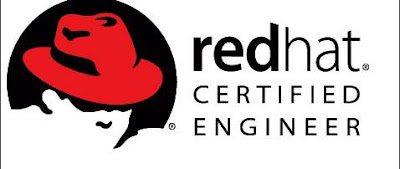What is RHCE?
RHCE is a global certification, which is designed to demonstrate the knowledge, skill and ability required for a system administrator who is responsible to handle RedHat Enterprise Linux systems. RHCE is meant for the configuration of static routes, packet filtering, and network address translation etc. It is mainly used for setting kernel runtime parameters, building simple RPMs, configuring an iSCSI initiator producing and delivering reports on system utilization using shell scripting to automate system maintenance tasks.
The importance of getting a real-time practical exposure:
RHCE is a global certification, which is designed to demonstrate the knowledge, skill and ability required for a system administrator who is responsible to handle RedHat Enterprise Linux systems. RHCE is meant for the configuration of static routes, packet filtering, and network address translation etc. It is mainly used for setting kernel runtime parameters, building simple RPMs, configuring an iSCSI initiator producing and delivering reports on system utilization using shell scripting to automate system maintenance tasks.
The importance of getting a real-time practical exposure:
 We need to understand that RHCE Training in Jaipur is not just another conventional certification program, but should provide a person with the needed technical skill-set to execute the live industrial tasks of a Linux Engineer with confidence. So, the first thing to check when you select an RHCE Training center is that whether they can provide a real-time technical environment with high-end infrastructure facilities as of live Linux Servers and support of experienced professionals. Remember, to become an industry-fit Linux professional, an industry exposure is a must.
We need to understand that RHCE Training in Jaipur is not just another conventional certification program, but should provide a person with the needed technical skill-set to execute the live industrial tasks of a Linux Engineer with confidence. So, the first thing to check when you select an RHCE Training center is that whether they can provide a real-time technical environment with high-end infrastructure facilities as of live Linux Servers and support of experienced professionals. Remember, to become an industry-fit Linux professional, an industry exposure is a must.
The modules covered under RHCE certification training are;
- setting kernel runtime parameters
- building simple RPMs,
- configuring an iSCSI initiator
- producing and delivering reports on system utilization using shell scripting to automate system maintenance tasks
- Configuring system logging, including remote logging
- Configuring a system to provide networking services, including HTTP/HTTPS, FTP, NFS, SMB, SMTP, SSH, and NTP etc
- Managing Flexible storage with the Logical Volume Manager(LVM)
- Installing and managing software
- Turning and maintaining the kernel
- Manage Virtual machines
- Network user Accounts with LDAP
Hello! This is my first post here, I just wanted to give a quick shout out and say I enjoy reading your blogspot. Can you recommend any other blogs/websites/forums that deal with the same subjects? I can only recommend you good website look at here
ReplyDeleteIts a really informative post..
ReplyDeleteRHCE Certification Course